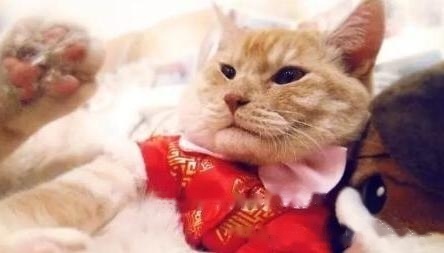The phenomenon of cat vomiting is relatively frequent and common, but it is so common that it is easy to be ignored by the owner. For example, if you eat a little more, indigestion will immediately spit out. Cat vomiting is a defensive phenomenon that avoids danger by vomiting. So what happens when the cat vomits after eating? Next, I will introduce it to you in detail.
What's the matter with the cat vomiting after eating?
1. The gastric mucosa is irritated
Vomiting is a common phenomenon for cats, not a disease. Vomiting is usually caused by strong stimulation of the gastric mucosa, which causes the stomach to contract against peristalsis. Vomiting is actually a protective reflex function of the body. , are all in the exclusion of stimuli.
2. Licking hair leads to vomiting
Because cats have the habit of licking hair, they often lick the hair into the mouth and enter the stomach. These licked-in hairs form hairballs in the stomach. When they reach a certain size, they will stimulate the stomach and produce reflex vomiting, which is normal.
3. Eating leads to vomiting
Cats will also eat too fast, too much, or eat more green food such as vegetables, It will also cause vomiting, which is also a kind of physiological vomiting. After vomiting, the cat will usually continue to eat as before.
Things to know about cat vomiting
1. Pathological vomiting
If it is caused by a sick Vomiting caused by factors is pathological vomiting. There are many pathological factors, such as viral, bacterial, parasitic, chemical and physical, etc. If it is caused by these factors, it is necessary to hurry up. Get medical attention.
2. Distinguish between physiology and pathology
When the cat is vomiting, the owner must distinguish whether it is physiological or pathological After vomiting, the cat will continue to eat, so you can ignore it, but if the vomiting is frequent and there are other abnormal phenomena, you should go to the doctor immediately.
3. Pay attention to diet care
Although vomiting is a very common phenomenon in cats' daily life, in daily life, as long as there are many Paying more attention to the diet and care of cats and taking preventive measures can reduce these vomiting and allow cats to grow up healthy.

Prevention of cat vomiting
1. Prevention of cold and vomiting
During the transition from winter to spring, the fluctuating heat and cold are the times when bacteria are most likely to breed. As long as the heat preservation work is not done properly, it is easy to cause a cold and vomiting. Therefore, it is necessary to do a good job of keeping the cat warm. , and replace tap water with distilled water.
2. Indigestible vomiting
The newly adopted kittens have not yet fully developed their stomachs, and some have not even eaten cat food, so Sudden feeding of cat food may be indigestible and cause vomiting. The prevention method is to feed the kitten with cat milk powder, ginseng and some rice. From time to time, give cats some pets to benefit from the large intestine, which can help to regulate the stomach and promote gastrointestinal digestion.
3. Food allergies
For some cats with special constitutions, some foods contain potential allergens, which usually occur when they eat normal food. For things that are not often eaten, the sick cat will vomit several times a week, and most of them will vomit within two hours after eating.
4. Prevention of food allergies
Determining the allergens of cats is not an easy task. Foods that are easy to cause allergies to cats are usually grains, food coloring, chemical additives and preservatives, etc. It is best to exclude these foods that may cause allergies and feed them Fixed food for cats.
![[Dog Training 5] The training method of pet dog dining etiquette](/static/img/12192/12192_1.jpg)




